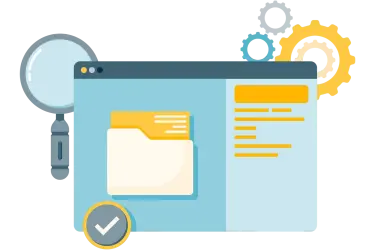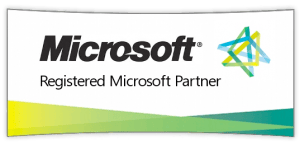Document Archive and Delete Policies: Essential for Compliance and Efficiency

Introduction
Organizations today grapple with an overwhelming volume of digital documents. Emails, contracts, invoices, and reports are just a few examples of the huge digital repository. Effective file archiving is indispensable for maintaining organizational efficiency and compliance. With documents ranging from active to inactive, it is essential to have a robust system to manage and secure them.
The Companies Act 2006 mandates specific record-keeping requirements, including the retention of accounting records and meeting minutes. Archiving is essential to comply with these legal obligations.
Docsvault’s Archive and Delete Policy offers a streamlined solution to declutter your workspace, improve search capabilities, and ensure compliance with data retention regulations.
What is Document Archiving and Deletion?
Document Archiving
Document Archiving is the process of transferring inactive documents to long-term storage. While archived, these documents remain accessible for future reference, ensuring easy retrieval when needed.
Document Deletion policy
Document Deletion policy ensures compliance with legal, regulatory, and business requirements by establishing clear rules for document disposal.
Benefits of Effective Archiving and Deletion
Decluttered Workspace
By moving inactive documents to an archive location, you can maintain clean and structured document storage.
By removing irrelevant files from the active workspace, employees spend less time sorting through unnecessary documents, which can enhance overall productivity.
Enhanced Search Capabilities
Archived documents remain searchable, making it easier to locate specific information.
By separating active files from archived files, searches within the active workspace are quicker and more targeted. In contrast, archived searches allow for historical research or information retrieval without disrupting current workflows.
Regulatory Compliance
Ensure adherence to data retention regulations by implementing a robust deletion policy.
Maintaining a clear and documented archiving and deletion policy ensures that organizations can quickly demonstrate compliance during audits or inspections. Comprehensive archiving practices simplify audit preparation and help organizations respond to requests for documentation or specific records.
Key Features of Docsvault’s Solution
-
Automated Archiving and Deletion:
Set up rules to automatically archive or delete documents based on factors like creation date, modification date, or document type.
Users can define rules that trigger archiving or deletion when certain criteria are met. For instance, a rule could automatically archive documents older than two years or delete temporary files after a certain period. This approach is beneficial for handling large volumes of data where manual management would be inefficient.
-
Manual Archiving and Unarchiving:
Exercise granular control over document lifecycle by manually archiving or unarchiving specific files.
Authorized users can manually archive files, making them less accessible for day-to-day use but stored securely for future reference. On-demand, users can unarchive documents as needed, allowing them to be re-integrated into active workflows without affecting the system’s automatic rules.
-
Secure Deletion:
Choose between soft deletion (moving files to the recycle bin) or hard deletion (permanent removal) based on sensitivity and regulatory requirements.
This is crucial for handling files that vary in sensitivity and regulatory requirements, ensuring appropriate disposal methods based on the file’s importance and sensitivity level. Soft Deletion moves files to a recycle bin or temporary holding area. Files can be recovered within a set time frame, adding a safety net against accidental deletions. Hard Deletion permanently removes files, ensuring they cannot be recovered, which is often required for sensitive data or compliance with data privacy regulations like GDPR.
-
Archive Policy Hold:
Prevent critical documents from automatic archiving or deletion by applying an archive policy hold.
Authorized personnel can place a hold on documents to override any automated rules temporarily or permanently, based on the document’s purpose. Holds prevent accidental archival or deletion, ensuring documents related to active litigation, audits, or regulatory reviews are retained and accessible for the duration of these needs.
-
Role-Based Access Control:
Only authorized personnel can set, manage, and execute archive, delete, and restore policies.
This approach ensures compliance with regulatory standards by restricting data management to approved users, a critical requirement in many regulated industries. It is especially beneficial for large organizations handling sensitive data, where multiple access levels are essential.
-
Comprehensive Auditing:
Maintain a detailed log of all archives and delete activities to ensure transparency and compliance.
Each action related to document management (such as archiving, unarchiving, soft deletion, and hard deletion) is logged with details like timestamp, user, document details, and action specifics. Logs can be searched and filtered to locate specific actions, users, or dates, allowing for efficient reviews or audits.
Use Cases for an Archive and Delete Policy
Industries are subject to stringent regulatory standards. Effective archiving is essential to ensure compliance with these industry-specific regulations.
Employee Record Management in HR
- Use Case: An HR department needs to retain records for active employees and must delete or archive them after a specific period once an employee leaves.
- Solution: With an Archive and Delete Policy, employee records can be automatically archived one year after the termination date, based on a metadata date field. The Delete Policy can be set to move these files to a recycle bin or permanently purge them, ensuring compliance with minimal manual intervention.
Legal Hold for Ongoing Litigation
- Use Case: A company involved in litigation needs to prevent certain documents from being deleted or archived until the case is resolved.
- Solution: The Archive Policy Hold feature prevents specified documents from being archived or deleted, securing them for the duration of the legal hold. Authorized personnel can manage and track these documents, ensuring compliance with legal requirements.
Regulated Industry Compliance (HIPAA, FOIA)
- Use Case: A healthcare organization must retain patient records in compliance with HIPAA, ensuring records are available when needed and securely deleted after the retention period.
- Solution: Using an Archive and Delete Policy, Docsvault can be configured to automatically archive patient records after five years of inactivity, based on their last modified date. Records remain retrievable if necessary. The Delete Policy can be set to permanently purge the records after 10 years, ensuring secure disposal of sensitive data.
Best Practices for Effective Archiving and Deletion
-
Regular Review:
Periodically review and update your archive and delete policies to align with evolving regulations and business needs.
-
Data Classification:
Classify documents based on sensitivity and retention requirements to streamline the archiving and deletion processes.
-
Robust Security Measures:
Implement stringent security measures to protect sensitive information in archived documents.
-
Compliance Audits:
Conduct regular audits to verify adherence to archiving and deletion policies and regulatory standards.
Docsvault understands that every organization has unique document management needs. Our flexible archive and delete solutions can be tailored to your specific needs. By adopting our document management solution, you can streamline your document management, boost productivity, and easily stay compliant.





